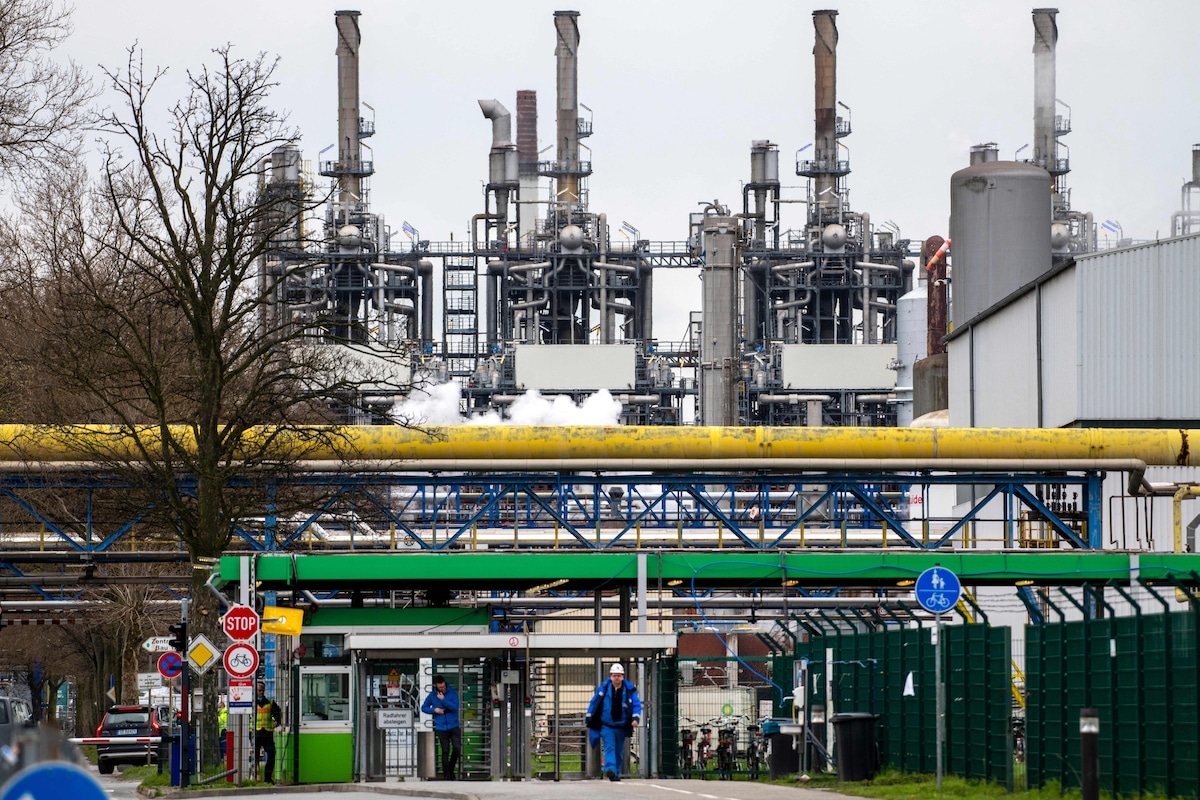Products You May Like
The BP petroleum refinery in Gelsenkirchen, western Germany on March 8, 2022. INA FASSBENDER / AFP via Getty Images
 Why you can trust us
Why you can trust us
Founded in 2005 as an Ohio-based environmental newspaper, EcoWatch is a digital platform dedicated to publishing quality, science-based content on environmental issues, causes, and solutions.
Oil and gas giant BP has scaled back plans to reduce its production of fossil fuels by 2030 after it saw record annual profits that more than doubled to $27.7 billion last year. Gas prices soared following Russia’s invasion of Ukraine, bolstering the company’s earnings.
BP now plans to increase its oil and gas production over the next seven years, reported The Guardian.
With other energy companies seeing windfalls — Shell reported $40 billion in profits last week — while people continue to struggle to pay their energy bills, there are calls for a heightened windfall tax for companies, BBC News reported.
“As millions struggle to heat their homes and put food on the table, BP are laughing all the way to the bank,” said General Secretary of the Trades Union Congress Paul Nowak, as reported by The Guardian.
More From EcoWatch
BP CEO Bernard Looney had a plan to steer the company toward renewable energy sources and away from oil and gas, but now the company has said it will increase its yearly budget for fossil fuels and renewables by $1 billion each, while focusing more on developing hydrogen and biofuels, Reuters reported.
BP’s new plan to reduce oil production is less ambitious than before — 25 percent lower than 2019 levels instead of the previous goal of 40 percent.
The company’s plans to reduce emissions from consumer fuels have also fallen from 35 to 40 percent to 20 to 30 percent. It still has a goal of net zero by 2050.

BP’s energy transition businesses — like electric vehicle charging and renewables — currently make up about 30 percent of its budget, compared with three percent in 2019.
“If the bulk of your investments remain tied to fossil fuels, and you even plan to increase those investments, you cannot claim to be aligned” with the ambitions of the Paris Agreement to combat climate change, said Mark van Baal, founder of activist shareholder group Follow This, as reported by Reuters.
Looney said it wouldn’t come as a surprise if BP’s UK tax bill was more than $3 billion this year, saying the company paid $3.60 for every $4.80 it made in profits in the North Sea, The Guardian reported.
“Over the last three years all the profit we’ve made in the North Sea we’ve either paid it all away in tax or reinvested it into Britain,” Looney said, as reported by The Guardian.
BP said it would be passing more of its profits on to its shareholders by upping its quarterly dividend disbursement by 10 percent and buying back $2.75 billion of its own shares. In 2022, BP paid its shareholders more than $14 billion.
Subscribe to get exclusive updates in our daily newsletter!
By signing up, you agree to the Terms of Use and Privacy Policy & to receive electronic communications from EcoWatch Media Group, which may include marketing promotions, advertisements and sponsored content.
